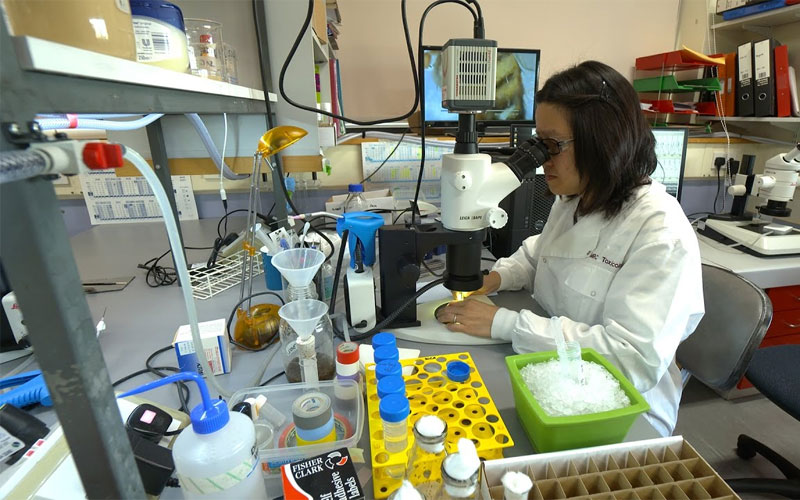Biochemical toxicology assessments play a crucial role in understanding the effects of toxic substances on living organisms. These assessments are essential for evaluating the safety and risk associated with exposure to various chemicals, pollutants, and drugs LTG. Through biochemical analysis, researchers can establish the relationship between chemical exposure and biological response, leading to better regulation and prevention strategies.
The Role of Biochemical Toxicology in Modern Science

In the contemporary world, where industrial activities, pharmaceuticals, and environmental pollutants are ubiquitous, the significance of biochemical toxicology assessments cannot be understated. They serve multiple purposes that contribute to public health, regulatory measures, and scientific advancements.
Impact on Public Health
Biochemical toxicology assessments are critical in safeguarding public health. They help identify hazardous substances and their effects on human health.
Evaluating the implications of exposure to various chemicals can illuminate potential hazards, allowing for informed decisions regarding public safety. For instance, when assessing a new pharmaceutical compound, toxicological assessments can help predict adverse reactions before the drug reaches consumers.
Moreover, these assessments contribute to the establishment of safe exposure limits. Regulatory bodies such as the Environmental Protection Agency (EPA) or Food and Drug Administration (FDA) rely on this data to set permissible levels of exposure to various chemicals in food, air, and water supplies, thereby ensuring community well-being.
Regulation and Policy Making
The insights gained from biochemical toxicology assessments are invaluable for policymakers. They inform regulations surrounding chemical usage and environmental standards.
When significant toxicological risks are identified, regulations can be enacted to limit or ban specific substances. For example, following comprehensive assessments, certain pesticides have been restricted or banned due to their detrimental effects on human health and the environment.
Additionally, these assessments foster transparency and accountability among chemical manufacturers. By adhering to established guidelines, companies can ensure that their products do not pose undue risks, promoting a culture of safety and responsibility.
Advancements in Scientific Understanding
The field of biochemical toxicology is continually evolving, fueled by advancements in technology and research methodology.
The incorporation of high-throughput screening techniques and molecular biology tools has transformed the way toxicity is assessed. With these innovations, scientists can analyze large volumes of samples efficiently, yielding faster and more accurate results.
Furthermore, interdisciplinary collaboration enriches this field. Partnerships between toxicologists, chemists, biologists, and epidemiologists lead to a more holistic understanding of how toxic substances interact with biological systems. This collaborative approach enhances knowledge transfer across disciplines, ultimately benefiting both science and society.
Techniques Employed in Biochemical Toxicology Assessments
Biochemical toxicology assessments utilize a variety of methodologies to evaluate the effects of toxic substances on biological systems. Understanding these techniques helps grasp how comprehensive and nuanced these assessments can be.
In Vitro Toxicology Testing
In vitro testing involves studying biological responses in controlled environments outside of a living organism, typically using cell cultures.
This technique is advantageous for initial screening of compounds. It allows researchers to isolate the biological activity of a substance in a simplified model, reducing the complexities presented by whole organisms.
It also facilitates the examination of mechanisms of toxicity. Researchers can observe cellular responses to different concentrations of a compound, providing insights into dose-response relationships. Such information is vital for identifying potentially harmful levels of exposure and determining safe thresholds.
In Vivo Toxicology Testing
In vivo testing examines the effects of toxic substances within living organisms, often employing animal models.
While more complex and ethically challenging than in vitro studies, in vivo assessments provide invaluable data on systemic effects, pharmacokinetics, and long-term toxicity. These studies can shed light on how a substance is metabolized and distributed throughout the body, offering crucial insights that in vitro studies cannot reveal.
Given the ethical concerns surrounding animal research, there is a growing emphasis on developing alternatives. However, current in vivo methods remain essential for understanding the full spectrum of toxicological effects.
Computational Toxicology
Computational toxicology is an emerging and exciting area within biochemical toxicology assessments, leveraging computational models to predict toxic effects based on chemical structure.
Using algorithms and machine learning, researchers can analyze vast datasets to identify patterns and correlations between chemical properties and toxicological outcomes. This approach significantly accelerates the assessment process, allowing for the rapid screening of thousands of compounds.
Moreover, computational models can aid in prioritizing substances for further testing. By predicting which chemicals are likely to be most harmful, resources can be effectively allocated to focus on high-risk substances.
Biomarkers of Toxicity
Biomarkers are measurable indicators of biological responses to toxic substances. Identifying specific biomarkers assists in detecting early signs of toxicity, even before clinical symptoms manifest.
Biochemical toxicology assessments often include the analysis of biomarkers in blood, urine, or tissue samples. For instance, certain enzymes or metabolites may indicate liver damage caused by toxin exposure.
The ability to monitor biomarkers allows for proactive management of exposure risks. When biomarkers suggest an adverse effect, interventions can be implemented promptly, potentially preventing severe health consequences.
Challenges and Future Directions in Biochemical Toxicology Assessments
Despite the advances in the field, biochemical toxicology assessments face numerous challenges that need addressing to enhance efficacy and reliability.
Ethical Considerations
The use of animal models in research raises significant ethical concerns. There is a growing movement advocating for the reduction of animal testing, leading to increased demand for alternative methods.
Scientists are actively exploring innovative approaches, such as organ-on-a-chip technology and advanced in silico modeling. While promising, these alternatives still require validation to ensure they can replicate the complexity of whole organisms accurately.
Moreover, ethical considerations extend beyond animal welfare; informed consent and participant rights must be prioritized in human studies conducted for biochemical toxicology assessments.
Regulatory Harmonization
Regulatory frameworks governing toxicology assessments vary widely across countries, complicating international trade and safety evaluations.
Establishing standardized protocols would facilitate more consistent regulatory practices globally. Organizations like the OECD (Organisation for Economic Co-operation and Development) work to promote harmonization, but challenges remain in aligning diverse legislative landscapes.
Collaboration between regulatory agencies can improve the efficiency of approval processes, ensuring that safety assessments are thorough while expediting access to beneficial products.
Emerging Contaminants
With constant technological advancement and industrial development, new contaminants continually emerge, posing novel risks that traditional assessments may not fully address.
Nanomaterials, pharmaceuticals, and personal care products are just a few examples of substances that warrant careful evaluation. As our understanding of their behavior and impacts evolves, so must the methodologies used for assessment.
Enhanced surveillance and adaptive assessment strategies will be critical in mitigating risks posed by these emerging contaminants.
FAQs
What are biochemical toxicology assessments?
Biochemical toxicology assessments are evaluations that study the effects of toxic substances on biological systems, including humans, animals, and the environment. They help identify hazardous substances and establish safe exposure levels.
How are these assessments conducted?
Assessments can be conducted through various methods, including in vitro and in vivo testing, computational toxicology, and biomarker analysis. Each method contributes unique insights into the toxicity of substances.
Why are biochemical toxicology assessments important?
They play a vital role in protecting public health, informing regulatory policies, and advancing scientific understanding of the effects of chemicals and pollutants on living organisms.
Are there alternatives to animal testing in biochemical toxicology?
Yes, there are ongoing efforts to develop alternative methods, such as in vitro tests and computational modeling, to reduce reliance on animal testing while still providing reliable assessments.
How do regulatory agencies use the results of these assessments?
Regulatory agencies use the findings from biochemical toxicology assessments to establish safety standards, enforce regulations, and protect public health from potentially harmful exposures.
Conclusion
Biochemical toxicology assessments are indispensable tools that advance our understanding of the interaction between chemicals and biological systems. Their impact stretches from public health protection to regulatory policymaking and scientific innovation. While challenges remain, particularly concerning ethical standards and the evaluation of emerging contaminants, the future of biochemical toxicology holds promise. Innovations in technology and methodologies continue to shape this field, paving the way for a safer and healthier world. Ultimately, the ongoing commitment to conducting thorough and precise biochemical toxicology assessments is paramount in mitigating risks and enhancing the quality of life for all.
